- 17
- Aug
Lithium ion battery 6S1P 22.8V 14000mAh for drone
Drone/UAV Battery Spec:
Product model: LKG-14000-6S1P-22.8V-25C
Capacity: 14000mAh
Voltage: 22.8V
Discharge rate: 25C
Finished product size: 50*93*201MM
Finished product weight: 1800g
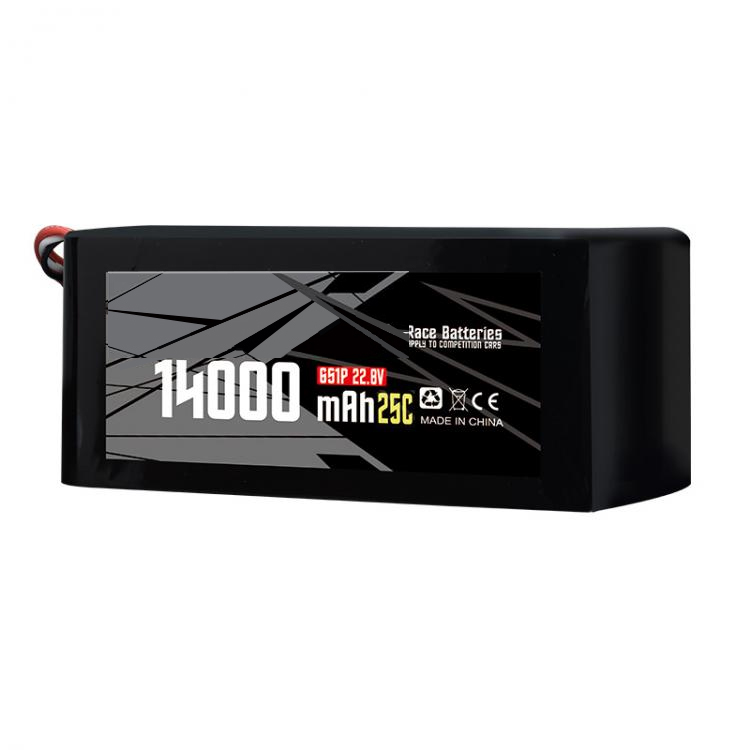

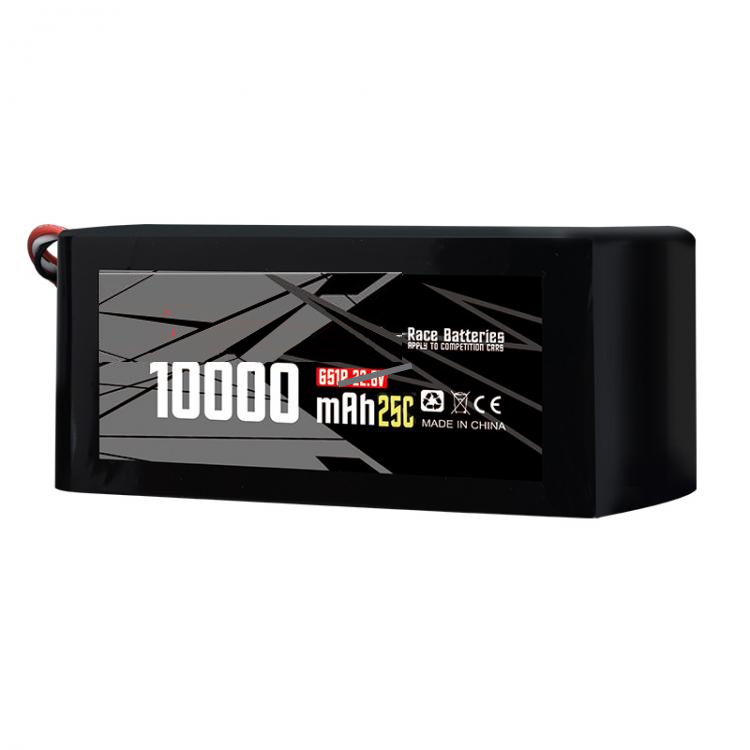
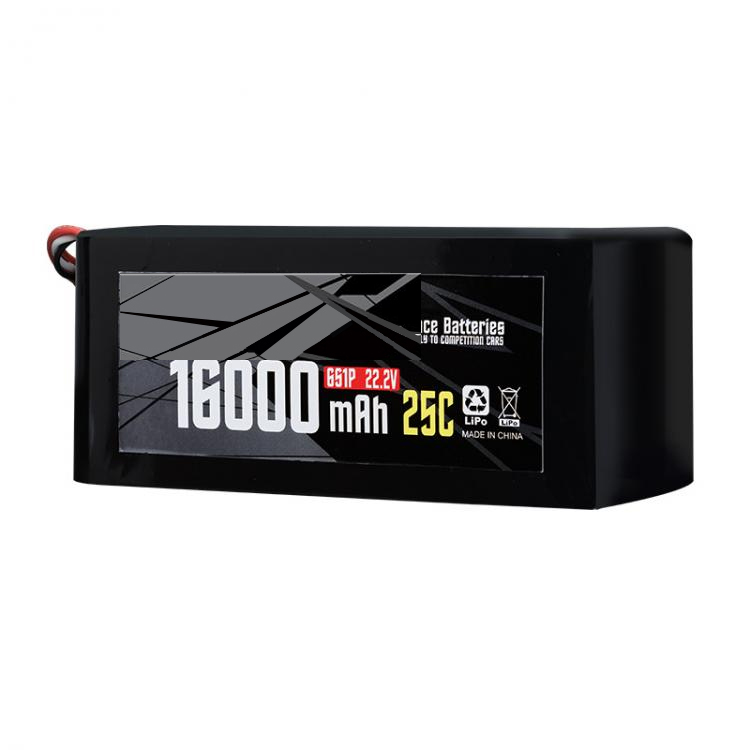
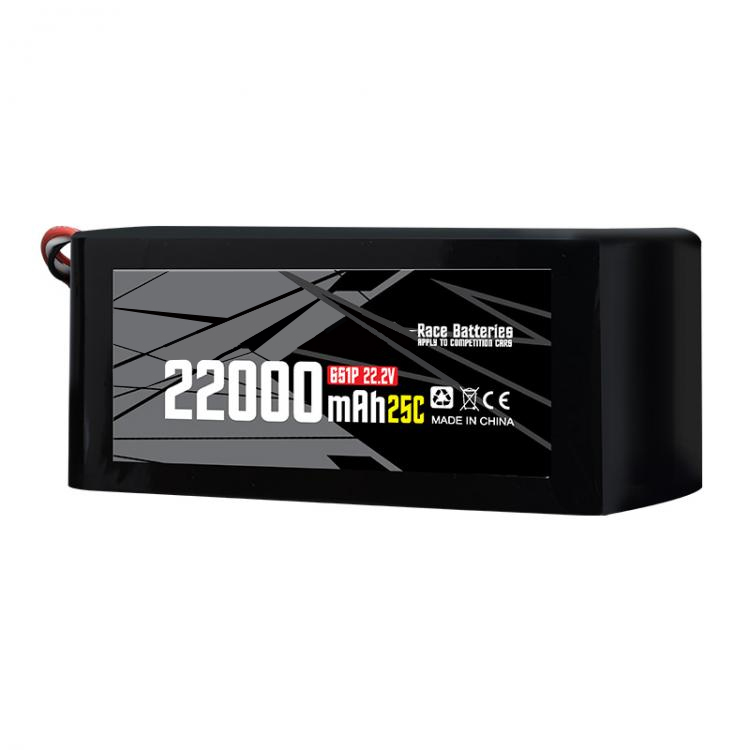
LiPo Battery for drone Spec Description:
| P/N | Capacity
mAh |
Voltage | Discharge Rate
C |
Maximum
Continuous Current |
Peak
Current |
Dimensions | Weight
+-15g |
||
| Thickness
mm |
Width
mm |
Length
mm |
|||||||
| 6S 25C 10000mAh | 10000 | 22.8V | 25C | 250A | 500A | 52 | 70 | 185 | 1350 |
| 6S 25C 12000mAh | 12000 | 22.8V | 25C | 300A | 600A | 60 | 70 | 185 | 1540 |
| 6S 25C 14000mAh | 14000 | 22.8V | 25C | 350A | 700A | 53 | 91 | 195 | 1710 |
| 6S 25C 16000mAh | 16000 | 22.8V | 25C | 400A | 800A | 54 | 92 | 200 | 2000 |
| 6S 25C 22000mAh | 22000 | 22.8V | 25C | 550A | 1100A | 72 | 92 | 215 | 2630 |
| 12S 25C 12000mAh | 12000 | 45.6V | 25C | 250A | 500A | 66 | 91 | 192 | 3100 |
| 12S 25C 14000mAh | 14000 | 45.6V | 25C | 300A | 600A | 106 | 91 | 192 | 3430 |
| 12S 25C 16000mAh | 16000 | 45.6V | 25C | 350A | 700A | 112 | 91 | 199 | 4000 |
| 12S 25C 22000mAh | 22000 | 45.6V | 25C | 400A | 800A | 132 | 91 | 215 | 5200 |
| 12S 25C 32000mAh | 32000 | 45.6V | 25C | 400A | 800A | 112 | 91 | 210 | 8000 |
This is Smart battery for drone,
1. Under the same capacity, it takes 15%-20% more time to fly than ordinary voltage batteries
2. The weight is the same as a normal voltage battery
3. Under the same power, the current does not need to be too large, so the internal loss becomes smaller
4. High discharge platform, strong power during takeoff, stable discharge, stable discharge
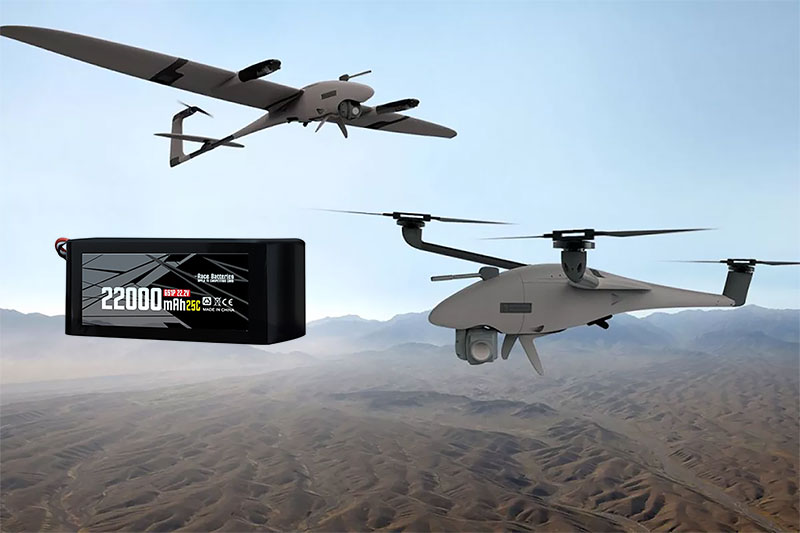
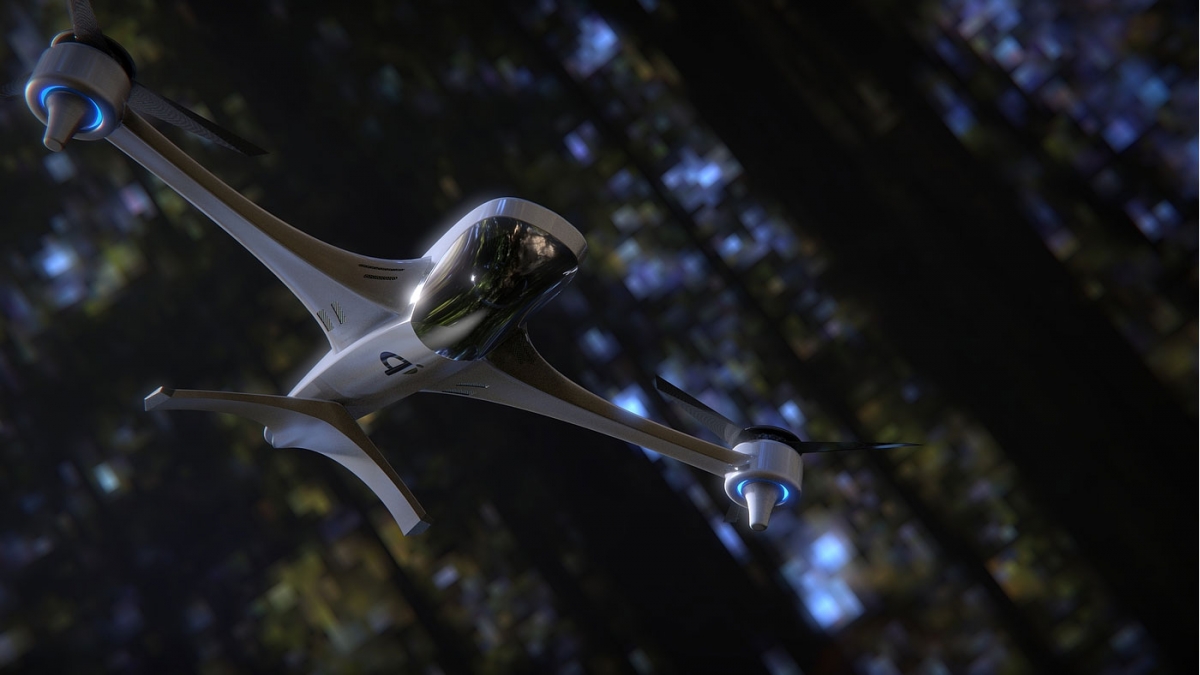
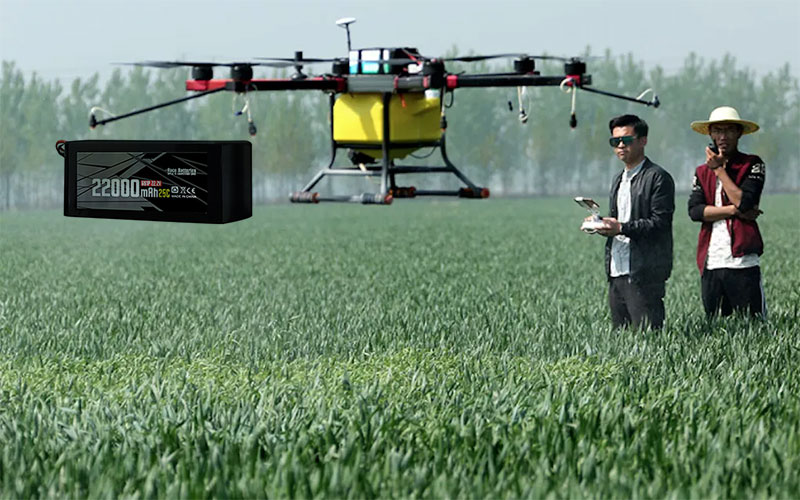
Something like Drone Battery 5000mAh you also can inform us,we will give you the related drone battery price
Drone battery maintenance tips:
1. Do not charge for a long time or charge it deeply. Long charge may lead to overcharge. Lithium batteries or chargers will automatically stop charging after the battery is fully charged, and there is no so-called “trickle” charging that lasts for more than 10 hours in nickel chargers. In other words, if your lithium battery is fully charged, it is also white charged on the charger.
2. Don’t overcharge or over discharge. Low voltage over-discharge or self-discharge reaction will cause the decomposition and destruction of lithium ion active materials, which may not necessarily be reduced. Any form of overcharging of lithium-ion batteries will cause serious damage to battery performance and even explosion. Lithium-ion batteries must avoid overcharging the battery during the charging process.
3. Since the lithium battery is a non-memory battery, customers are advised to charge or recharge the battery pack regularly after each or daily use, which will greatly increase the service life of the battery pack. It is not recommended to charge the battery after using it every time until the battery pack cannot discharge its power. It is not recommended to discharge more than 90% of the battery pack’s capacity.
4. The capacity of the battery pack is measured at a normal temperature of 25°C. Therefore, in winter, it is considered normal for the battery capacity to be used and the flight time to decrease slightly. It is recommended to charge the battery pack in a place with high ambient temperature in winter to ensure that the battery pack can be fully charged.
